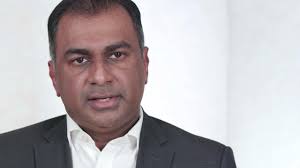Companies are now facing not just tech transformations but also shorter skill lifespans for their workforce
In an era marked by rapid disruptions — from the advent of generative AI to the challenges of talent retention and escalating costs — banks are now facing a pivotal choice: adapt to change or drive it themselves.

Speaking at the Asian Banking & Finance Forum in Ho Chi Minh City, Vietnam, recently, Sen Ganesh, a partner at Bain & Company, talked about the transformative forces shaping the banking and insurance sectors.
He also emphasized the importance of proactive strategies in response to these disruptors.
Outlining 3 key strategies
Ganesh outlined three key strategies adopted by financial institutions to navigate this landscape:

Sen Ganesh of Bain & Company (IMAGE CREDIT: https://www.bain.com/insights/)
Firstly, some financial institutions now opt to become disruptors themselves by embracing innovation and building entirely new digital infrastructures. While promising, this approach entails significant investment and risk.
Secondly, many banks choose to modernize their existing systems, making them leaner and more efficient. This involves breaking down technology into microservices for enhanced scalability and adaptability.
Thirdly, financial institutions focus on creating compelling digital experiences and fostering what Ganesh refers to as an “intelligent” engagement. By harnessing technology to personalize customer interactions, banks can now drive customer satisfaction and loyalty.
However, amidst these advancements, Ganesh underscored the pressing challenge of talent retention.
With the half-life of skills shrinking to just five years, FIs must adopt innovative talent management strategies to remain competitive.
Placing top performers in critical roles
Ganesh likewise emphasized the importance of placing top performers in critical roles and nurturing a culture of continuous learning and inspiration. He highlighted the significant productivity gains that result from an inspired workforce, urging companies to invest in employee well-being and motivation.
In addition to internal challenges, Ganesh addressed external disruptors such as generative AI and ESG considerations. While recognizing the potential of AI to revolutionize customer interactions, he cautioned against the opacity of AI decision-making processes and the regulatory challenges it poses.
On the ESG front, Ganesh identified significant opportunities for growth, particularly in financing decarbonization and offering value-added services.
He also emphasized the importance of banks and insurers in driving sustainability initiatives and supporting SMEs in the transition to a greener economy.
In conclusion, amidst the disruption and innovation, banks must now embrace change, invest in talent, and prioritize sustainability to thrive in the evolving financial landscape.
For more insights and updates on the banking industry, join the Asian Banking & Finance community today. Check out this link for more info: https://asianbankingandfinance.net.








